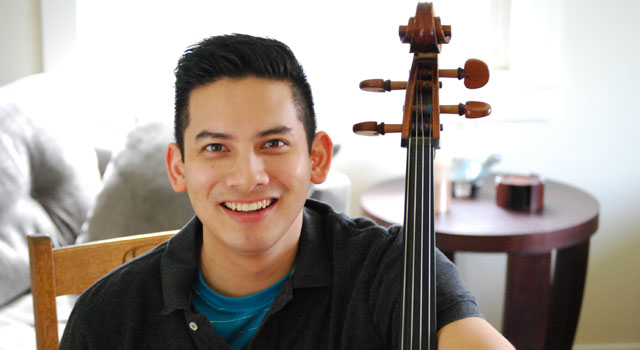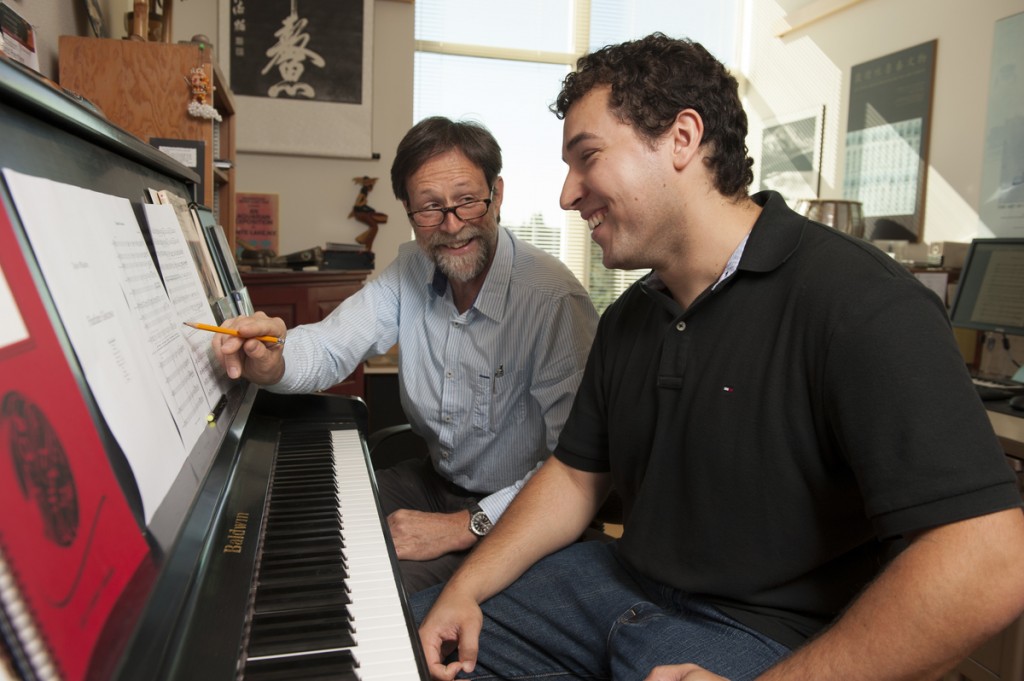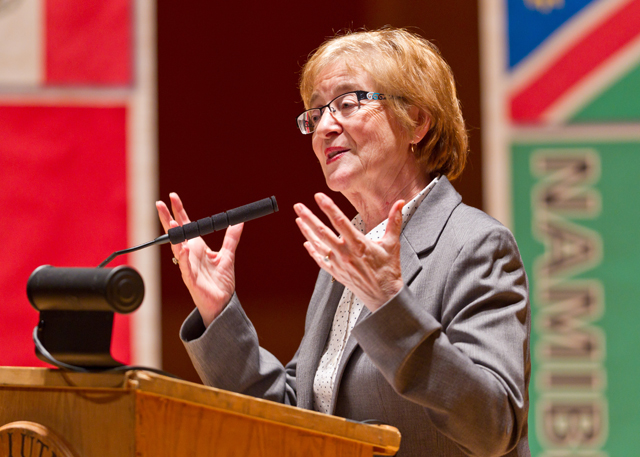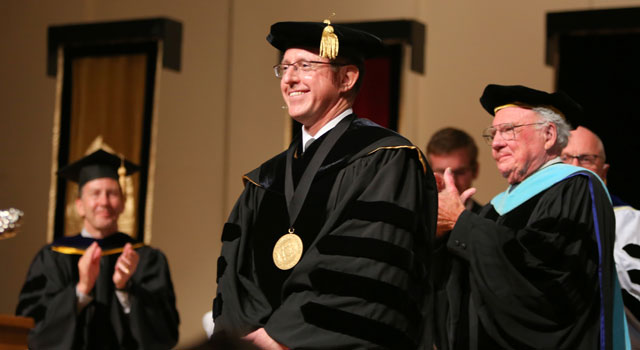Page 79 • (1,258 results in 0.022 seconds)
-

, understand and change the world.” Wee became interested in continuing PLU’s revitalized children’s theatre program after spending a semester in London working with a children’s theatre. Wee worked as assistant to the artistic director in a program that paired children with professional actors, directors and playwrights to work one-on-one to write a play. “These professionals have worked at Shakespeare’s Globe, the National Theatre, on the West End, and in various movies and television shows, so the
-

the Seattle production at the Balagan theatre as Ilse. After becoming friends during productions at PLU, they knew they wanted to stick together after graduation. “We love making art together, so to end up in the same place, working on the same show, was unbelievable and heartwarming,” Helland said. “It’s a gift.” The original production started rehearsing in November 2011 and premiered in January. The remount of Balagan’s production of Spring Awakening opened on April 20th and closed this summer
-

.) Whatley said his former Composition professor, Greg Youtz, advised him to enter the competition, which was open to college students throughout Washington. On its website, LUCO calls Whatley’s Fanfare Giocoso “a playful fanfare in 7/8 time throughout!” (complete with exclamation point!), and Whatley said it was his intention to bring feelings to his composition. “I really wanted a piece of music that felt exciting from beginning to end, that didn’t have downtime,” Whatley said. “This is the opening of
-
before they are ready for processing and end up on a dinner plate. That’s compared to 15 months in a feedlot, Joel Huesby said. But the trade off is worth it. Once the land returns to its natural cycles and is weaned off expensive and corrosive pesticides and fertilizers, the soil is more productive. In turn, the animals are healthier, he said, with all the fervor of a revivalist preacher. For Keith and Clarice Swanson, returning home to Walla Walla was part of the natural cycle as well. Both
-
July 8, 2008 Spanning the globe during J-Term 2008 In January more than 400 students were sojourners in 21 countries across the globe as once again PLU classes convened on all seven continents. ANTARCTICA Journey to the End of the Earth From the great South American city of Buenos Aires, Argentina, to the tip of the continent in Patagonia and Tierra del Fuego, students explored some of the grandest scenery in the world. Patagonia served as a jumping-off point for 11 days in Antarctica – all
-
measure, the program is hugely successful. Wendy Robins, sustainability operations manager for Dining and Culinary Services, has overseen the changes in the U.C. She estimates that, at the end of the 2007-08 academic year, the U.C. reduced what it sends to the landfill by 70 percent. Or, put another way, the garbage-truck size trash compactor that sits on the U.C. loading dock used to be emptied once a week. Now, it is emptied about five times a year. The re-opening of the U.C.’s dining area, called
-
rather swiftly. And they crucified people a lot, he noted. One mass crucifixion (the remains of Spartacus’ rebellion) stretched for 300 miles along the Via Appia leading from Rome. Romans considered the convicts subhuman and not worthy of mercy, he noted. Animals captured for the shows in the great Coliseum weren’t torture, but in the end, did die. During the time when the great shows were at their height, between the first and third century AD, thousands of animals from tigers to hippos, died. So
-

Steve Colgan, fair director, as he watched over 500 students stream into Olson Auditorium last month. Nicholas Dillon, 9th grader at Woodrow Wilson High School, waits with boredom for the judging period to end. Dillon received a second place award for his project. “Our role [as the science fair] is to provide a showcase for the students who take the time to explore their world… It’s a way to honor and recognize them, and in a little way to recognize schools and teachers, too,” Colgan said. “PLU
-

activist Maude Barlow to an assembled crowd in Lagerquist Concert Hall. “There’s lots of water, until there’s no water at all,” the keynote speaker of the 2012 Wang Symposium – Our Thirsty Planet, told the crowd. The address marked the inaugural PLU Norwegian-American Annual Lecture. “First and foremost, we are a planet running out of water,” Barlow said. “What we actually have to get our heads around is we are actually coming to the end of water.” In many parts of the world, rivers and fresh water
-

the life of the mind and teaching people like you is their ‘Wild Hope,’” Krise said. “In the end, PLU is all about you – the students,” he said. “PLU’s strong commitment is for you to realize your ‘Wild Hope.’” Krise reminded the class of 2016, there are many alumni who have found a passion and carrying on that tradition in the world today. Like Brian Bannon ’97, who now heads the Chicago Library system, the second largest library system in the country. And there’s William Foege ’57, who this year
Do you have any feedback for us? If so, feel free to use our Feedback Form.


